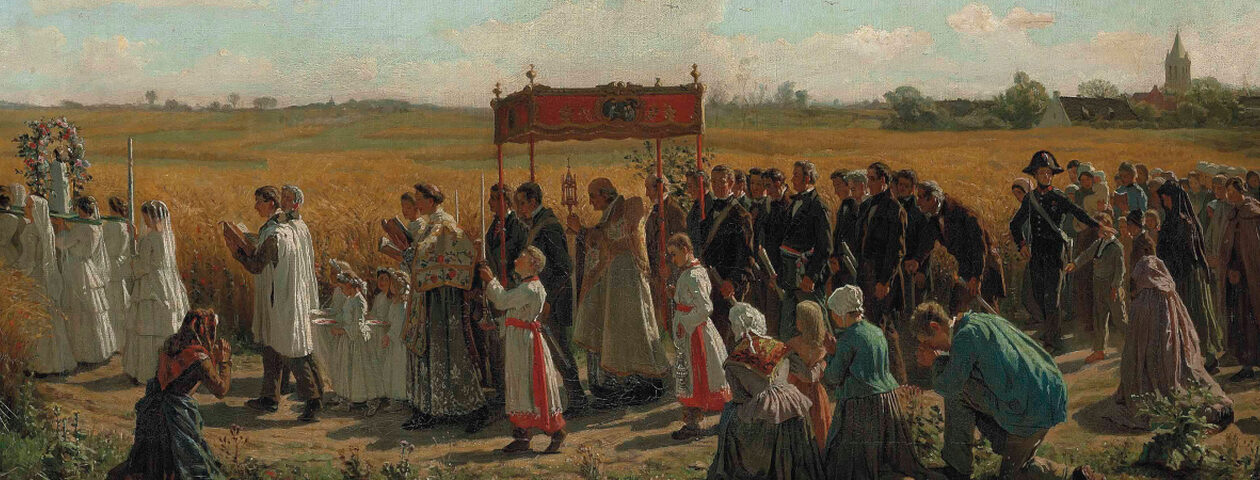
The Body broken, and the Blood poured out becomes the greatest symbolic action of Catholic liturgy. The “Eucharist is the source and summit of Christian life” (CCC 1324). Therefore, in the Eucharist we break ourselves time and again for the sake of humanity with the same intensity of God’s love and self-giving.
The Old Testament records God’s constant invitation to all people to have a personal communion with Him. He does that because we are capable of having relationship and communion with God. According to scripture, it is part of our creation in God’s image and likeness. We have been created by Him and for Him. We can be fully human only in communion with our loving and caring God. When we lose sight of God, we lose our humanity and allow every form of savagery to prevail in us.
The Feast of the Body and Blood of Christ, that we celebrate this weekend, calls us to reflect on the cultural situation of our present world. Our personal communion with God has a tremendous impact on how we shape our world culture. Moses, in the Old Testament, realized the folly of human life without God and made sure that the people of Israel would renew their covenant with God, as often as possible. The covenant with God – the Passover Mystery – becomes an antidote for all liberalism, secularism, romanticism, humanism and many other such ‘isms’ and keeps their focus on true humanity.
In the first reading of this weekend, Moses sprinkles the blood of the animal on the assembly gathered at the foot of the mountain. This is a symbolic action. All those who have the blood of the animal are now connected with each other. They are now brothers and sisters and have become one family. They are the people of the covenant and, therefore, people of God.
What Moses did in the exodus was a prophetic foreshadowing of the blood sacrifice of the new covenant ratified by the blood of Jesus Christ. This is the sacrifice of the Cross, a sacrifice of self-giving in pure love of each other. We not only participate and offer this sacrifice, but we also eat the body of Christ and drink the blood of Christ. We complete this sacrifice by assimilating it within us and become what we have sacrificed – the person of Christ.
When we receive the Eucharist, we come into a communion with Our God and reaffirm our acceptance of the new covenant allowing ourselves to be transformed gradually into the image of Christ. The performance of the reception of the Eucharist requires faith in what it stands for. If we allow ourselves ‘to be broken and poured out’ in Christ for the Kingdom of God at the Eucharistic table, we may see the humanity of Christ transform ourselves and our world.
– Fr. Ranjan D’Sa, OCD

